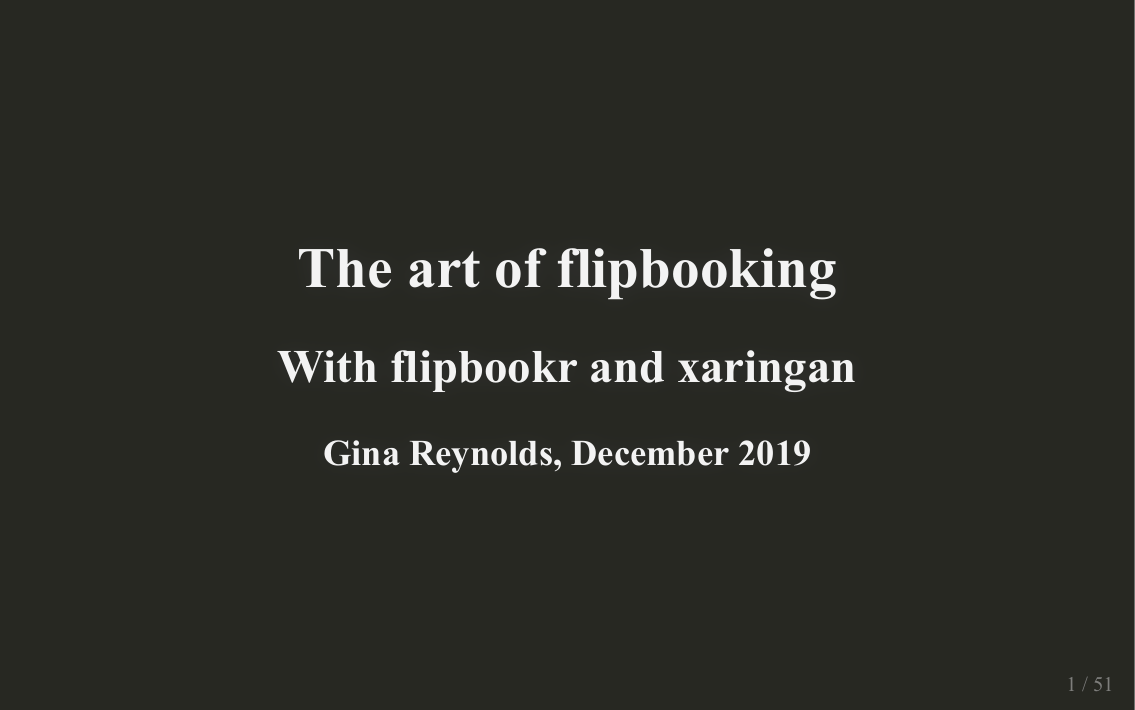
“Flipbooks” are tools that present side-by-side, aligned, incremental
code-output evolution via automated code parsing and reconstruction. Like traditional flipbooks, they let the reader watch a scene evolve at their own pace. Existing “dynamic documents” provide valuable insights about code behavior, by presenting code blocks together with their output. Yet many substeps may be contained within a single pipeline of a code block. If the reader of the dynamic document is familiar with many of the substeps, the reader won’t have too much trouble inferring what must be happening in unfamiliar bits. However, if many substeps are unfamiliar to the reader, linking code and behavior is a much trickier business — how a block of code transforms input “A” to output “B” may be murky for a newcomer. Flipbooks seek to reduce the guesswork involved between code and its behavior by presenting substeps of a coding workflow; the reader of a flipbook observes the partial code that is used to create “A.1”, “A.2”, “A.3” etc. all the way up to “B”. The additional burden to create a flipbook (versus a traditional dynamic document) is not great because parsing and reconstruction of code pipelines into substeps is automated.
You can install the development version of flipbookr with devtools as follows:
You will most likely use this package with the rmarkdown presentation tool, Xaringan, which is available on CRAN:
The package includes a template for building a flipbook that demonstrates various flipbooking modalities; the template can also be accessed from within RStudio (New File -> RMarkdown -> From Template -> A Minimal Flipbook) here. Here is a preview:

The full flipbook, an html slideshow, that you can advance at your own pace, can be viewed here.
We believe in communicating with flipbooks, so we use the tool to describe the functions that are at work within the package here